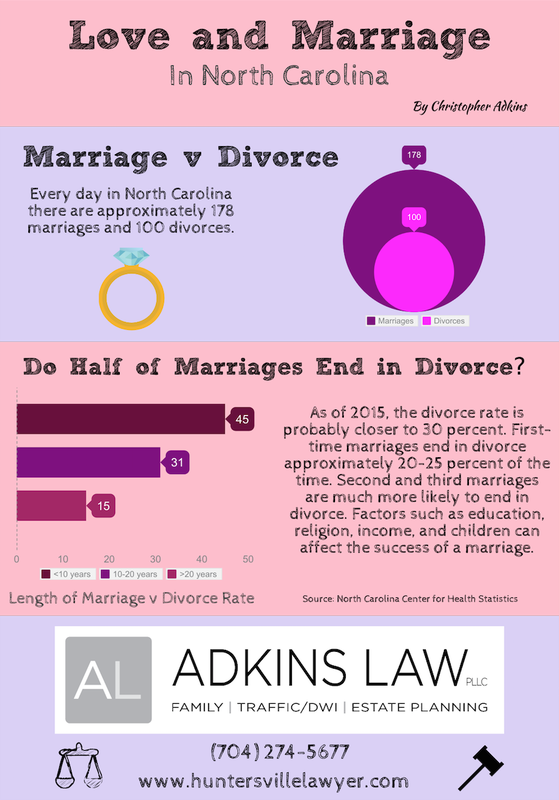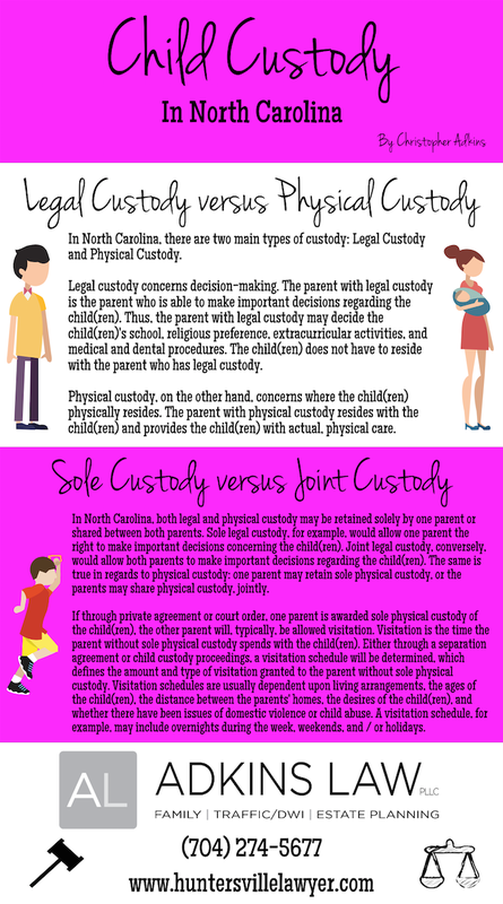 Chapter 11 bankruptcy allows a company to reorganize itself and remain operational while it pays back its creditors. The logic behind allowing a company to do this is that it is better for everyone to let a company keep operating and stand a chance at paying creditors back than it is to shut the company down completely. Chapter 11 bankruptcy is not available to individual debtors. It is only available to companies, like partnerships and corporations, which are not sole proprietorships. Partnerships and corporations are likewise not allowed to file for Chapter 7 or Chapter 13 bankruptcy, which are available only to individuals or sole proprietorships. Chapter 11 bankruptcy is one of the more complicated forms of bankruptcy available to companies, and a decision to file for it should not be made lightly. Chapter 11 Process In addition to yourself and your creditors, there are several parties involved in the Chapter 11 process. One of them is the bankruptcy trustee, a court-appointed custodian whose job it is to form a committee of your creditors to vote on a reorganization plan. You have the right to submit a reorganization plan for the first 120 days after the case is filed. The purpose of the plan is to lay out how your creditors will be paid back. Usually, you will pay them back out of the business’ future earnings, although some plans can include a limited liquidation of business assets. The idea is to come up with a plan that has a realistic chance of success, something which both pays your creditors something of what you owe and keeps your business operational. Unlike in a Chapter 13 plan, there is no time limit on how long the plan has to take. The committee of creditors will have to vote on your reorganization plan. Not all have to vote for in order for it to be confirmed. If your business is a corporation, your stockholders must also agree to the plan. After it has been confirmed, the bankruptcy court will have to approve it. Even if some creditors object, the court will still approve the plan if it thinks the plan is reasonable. If the plan is approved, you will begin making the prescribed payments to your creditors. If you’re successful, you will leave the bankruptcy process with lower debts and a reorganized business. Another player involved is the bankruptcy court, which will have the power to approve some of your business decisions. You’ll remain in control of daily transactions, but anything involving a great deal of money needs the consent of your bankruptcy trustee and the court. Advantages of Chapter 11 A successfully filed Chapter 11 bankruptcy offers many advantages to the debtor company. Among them are:
The bankruptcy process, especially the Chapter 11 bankruptcy process, can be a complicated one. Consider consulting a business bankruptcy attorney before making the decision to file.
4 Comments
 Trademarks are identifying names or symbols that mark a product or service as being uniquely associated with the company which sells or offers that product or service. Two or more companies may sell similar products, but trademarks distinguish one such company from another. Both McDonalds and Burger King sell hamburgers, for instance, but only McDonalds is allowed to mark its food products with the golden arches. Trademarks help build brands, and the law of trademark helps companies hold onto those brands once they become recognizable on a larger scale. Eligibility Short words and phrases are not eligible for protection under copyright, but they can be trademarked. Things which are eligible for trademark protection include:
Descriptive, Suggestive, and Arbitrary marks all have something in common: they are presumed to have “secondary meaning.” Secondary meaning is a legal term indicating that a product or service has become associated in the mind of the public with the particular product or service which it represents. When a name or mark has secondary meaning, the owner can claim trademark protection. How to Get a Trademark One can get a trademark for a product or service in a number of ways:
No one is required to register for a trademark, but doing so provides certain advantages. For one thing, registration puts those who might want to register their own marks on notice of yours. For another, registration gives you a legal presumption of ownership, so if there’s ever a conflict the law will assume that you are the owner of the trademark and the person who allegedly infringed upon it will have to prove otherwise. Consequences for Infringement: The penalties for using a mark without the owner's permission can be serious. If you infringe someone else's mark without knowing it, you could have to pay the owner lost profits from the sales of the owner’s goods or services. If you intentionally infringe upon someone else’s mark, you may have to pay all profits you made selling the goods or services that used the mark, plus attorney's fees. Contact Adkins Law if you wish to speak with a Huntersville trademark attorney. One of our Huntersville trademark lawyers can arrange a consultation with you to discuss your trademark matter. Contact Adkins Law to speak with an experienced Huntersville DWI attorney about your DWI charge. One of our Huntersville DUI lawyers will arrange a DWI consultation with you to discuss your strategies and options moving forward.  Economic pressures may have you convinced that anything is better than nothing when it comes to securing employment. Getting hired nowadays can be an uphill climb, however as a new employee, you need to take several things into consideration before signing your employment agreement. By keeping these five things in mind, you can try to prevent litigation should your new venture turn sour. What’s in this thing? The Employment Contract “Congratulations, you’re hired! Sign here and we’ll get started.” Every employer-employee relationship is a contract. Generally, contracts are legally binding. It is imperative that you know your rights and obligations to your employer BEFORE a claim arises. This means that you do actually have to read the agreement, and more importantly, understand it. When a formal written employment contract is required, there are several common terms within it. These terms legally protect both the employee and the employer. Terms may be industry-dependent, but most employment contracts include: compensation plans, benefits or stock options, duration of the contract, grounds for termination, severance clause, a non-disclosure clause, an arbitration provision, expectations and duties, and a non-compete clause. Tricky Terms and Creeping Clauses The importance of understanding terms of contract This is possibly the most important thing to keep in mind when starting a new job. Through the excitement of your new employment, you read your contract, maybe even read it carefully (assuming you understood #1 above). You sign. Six months later you hate it, and quit when a competitor company makes you an offer. Happens all the time - but you could be subject to legal limitations, such as accepting your new offer or retaining your previous clients. If your previous employment contract contained a non-compete clause, you may not be able to work for a similar company or transfer your previous clients for a certain period of time. Many employment contracts contain non-disclosure or confidentiality clauses as well, which prevent the departing employee from sharing information relating to the employer’s business. You don’t want to learn that you signed a non-disclosure agreement after you sent out the recipe for your employer’s secret sauce. The bottom line? Understand what each term or clause in your contract means, as well as your rights and obligations that go along with them. Big Brother is Watching You probably have no privacy rights to your emails It is true. If you forward your personal or non-business emails to your Outlook account at work, anything you send is saved and can be used against you in court. Keeping your accounts separate is kind of a ‘duh’, but don’t get lazy and utilize your work email for anything you wouldn’t want your whole office to see. In a company, not even the CEO has privacy rights to the emails they send. Every document and every email is saved because companies know they have to keep EVERYTHING should a lawsuit arise. It is important for you, as an employee, to do the same. If you save your emails, they can be evidence to build your case should you encounter a lawsuit. Especially be conscious of retaining anything that may be related to illegal activity (i.e. harassment or fraud). Who’s who and who do they answer to? Organization of the Company This one may seem silly, but it is serious. Knowing the organization of the business or company is critical to respond effectively to issues. Be aware of who your boss answers to, and the entire chain of authority for the organization. This makes correcting mistakes easier, relieving liability more probable, and resolving compliance issues faster. Practically… er…Imperfect in Every Way Keeping up with your personal file It may be a surprise that your employer has a personal file on you (it was to me). You previous employer does too. With each person an employer hires, they begin a personal file. This file contains internal memoranda and notes on anything you may have done that they find displeasing. Even if you are convinced you are a perfect employee, your previous HR department may have thought your “sick day” Monday after the Superbowl was a little suspicious. This file typically will only contain negative instances (even very minor occurrences), and are kept in anticipation of litigation. They will also be pulled as prospective employers read your resume and call your references. Once you start a new job, you should check out your personal file after 3 months or so. Each state is different, but usually you can request to access your own file, for instance, twice a year. This is a great way to see how you’ve started out and fix anything you’ve been doing wrong. Hopefully, there is only constructive criticism in there! Contact Adkins Law if you need to speak with a Huntersville employment lawyer. One of our Huntersville employment attorneys can arrange a consultation to discuss your employment matter in detail. Adkins Law is located in Huntersville NC and offers a range of legal services including family law matters such as divorce, child custody, child support, alimony, spousal support, and dividing marital assets and debts. Contact Adkins Law to speak with an experienced Huntersville divorce attorney about your family law matter. One of our Huntersville divorce lawyers will arrange a family law consultation with you to discuss your strategies and options moving forward.  By Elspeth Crawford One of the top areas of concern for employers is compliance. This is where the legal and human resources worlds collide. Compliance encompasses any laws or regulations the business must follow, as well as the employer’s own policies. Often a lawyer and/or human resource personnel work to ensure that employees at all levels of the company are working in compliance with these laws and policies. Legal issues and lawsuits can arise if compliance rules are not followed. Ensuring quality compliance in the scope of employment takes planning, action, checking, and responding. As an employer, staffing is the first place to start. Employers want to hire employees that understand and work in compliance with company policies and procedures. Employees should respect and promote a culture of compliance. By doing so, legal issues for the employee and employer are avoided. Additionally, planning quality compliance requires attention to policies. Policies should be simple, updated, and realistic. They should establish reporting (including self-reporting) procedures and provide examples. Once policies have been established, a calendar should be created with a built in “tickler system”. A tickler system is a way of checking compliance obligations. Once these triggered obligations are identified, decide on a period for the “check-ups”. Also, consider what steps to take if an obligation has not been completed. When planning the tickler system calendar, it is important to remain organized and decide who receives alarms resulting from the checks. This system should be organized so that there are independent, separate authorities that can police. The next step is educating employees about the created policies, and any laws or regulations pertinent to their positions or the industry. To establish training expectations, an employer needs to identify needs by considering any contracts, regulations, permits, and policies to which the employees are subjected. Scheduling training requires the employer to consider the period, length and frequency of the training, as well as whether internal or external sources will be providing the training. For compliance purposes, determining how training was conducted, who attended, and testing should measure the training process. Measuring training is important to ensure that the tactics were effective in providing employees with an understanding of the required compliance for their jobs. If training is not measured, the employer has wasted time and money, and legal issues with noncompliance are more likely to arise. It is important to check employees’ performance with respect to compliance. The employer should have in place a system by which to monitor, assess, and audit. Completing reports and addressing inquiries efficiently will lessen noncompliance. With an agenda and record focused on education and improvement, examining issue-areas will be much simpler. If compliance issues do arise, it is important to act quickly. This goes for the employee and the employer. An employee should report any noncompliance that becomes known to them, and the employer should be prepared to respond with assistance. If the non-compliance can be corrected, then the liability could be reduced or eliminated. If noncompliance becomes serious, changes in organizational structure, roles, and responsibilities may be due.  By Elspeth Crawford Chapter 7 bankruptcy is a personal form of bankruptcy which, when filed, erases at least some of your debt and gives you a fresh start at building credit. Under Chapter 7, a bankruptcy trustee will look through your assets and try to sell those assets he’s allowed to sell in order to pay off your debts. Priority The bankruptcy trustee will use the money made from selling your assets to pay off your creditors. The order in which creditors are paid depends on the applicable state and federal laws. Past-due child support and alimony are often paid first. Wages that are owed to others may be paid next. Credit card debts will be paid last. What happens if you have no assets to sell? In this case, many of your debts will still be erased. The Chapter 7 process tries to appease creditors as best it can, but most creditors receive little from it. Chapter 7 bankruptcies are often called “no-asset bankruptcies” for this reason. What Debts Does Chapter 7 Bankruptcy Erase? Chapter 7 Bankruptcy erases, or discharges, most types of unsecured debt. An unsecured debt is one that is not attached to an item of property that guarantees payment through the possibility of foreclosure or repossession. Common forms of unsecured debt include credit card bills, personal loans and medical bills. Chapter 7 will also discharge court judgments against you that do not intentional infliction of personal injury, intentional property damage, or drunk driving. If, for example, you dinged someone’s car by accident and were being made to pay for the damage, such judgment would be discharged. If on the other hand you were in an accident as a result of driving drunk, the judgment would not be discharged. What Debts Can Chapter 7 Bankruptcy Not Erase? There are some debts which Chapter 7 bankruptcy cannot get rid of. These include:
Reaffirmation In some cases, a Chapter 7 debtor may choose to reaffirm, that is to renegotiate and continue to pay, a debt rather than discharge it. Debtors may want to do this if the debt is secured by some item they need, say their car, and discharging it completely would result in the item being repossessed. Under a reaffirmation, they will have the opportunity to at least negotiate new terms that may be more favorable to them. Exemptions and Exclusions Chapter 7 bankruptcy law does not exist to erase someone’s debt in exchange for all of their possessions. It allows debtors to retain exemptions, or a certain dollar amount of property that your trustee may not sell. For example, Chapter 7 bankruptcy allows you to keep certain amounts of equity in your car or home. Say, for example, that you own a car worth $10,000 and have paid off the car loan in the amount of $2,000. If the federal exemption for automobiles is $3,000, you get to keep the car because your equity is less than the exemption. But keep in mind that you must continue to pay the loan to keep the lender from repossessing the car. Federal law also lists exclusions, certain property which cannot be sold through bankruptcy no matter how much it’s worth. For example, your trustee is not allowed to sell your retirement funds, annuities and certain trust funds through a Chapter 7 bankruptcy. Both federal and state bankruptcy laws include lists of excluded property under Chapter 7. Some states' exemptions are better than the federal rules. Some are not. Some states let you choose between the federal or state exclusions, and in this case a qualified bankruptcy attorney can help you make the best decision. Time Limit After you file a Chapter 7 bankruptcy, you must wait 8 years before you are allowed to file one again. This time limit exists to prevent people from abusing the system by constantly building up debt and filing for bankruptcy whenever their creditors come around to collect. If you are in debt and are thinking of filing for Chapter 7 bankruptcy, consult a bankruptcy attorney who can help you through the process. Most bankruptcy attorneys file Chapter 7 bankruptcy for flat, relatively affordable fees.  By Elspeth Crawford What happens to you after you die is a question with no answer. What happens to your stuff, however, is much more clear. If you own property and assets, you should strongly consider drafting a will. That way you, and not your state government, can decide who gets your property and assets when you die. In most cases, wills are written legal documents, but some states do recognize other types of wills. The legal requirements of each state can vary, so it's essential that your will is drafted and executed properly. The main reason for having a will is to allocate your property to heirs in any way you like. But there are other things you can include such as funeral arrangements, legal guardians for your minor children, and who should serve as executor of your will or trustee of any trusts you create. A Will Must Meet Certain Legal Requirements Most wills are formal documents that instruct how money and property should be distributed to each person named as an heir. Typically, for a will to be valid, you need to have one or two people witness you signing the will and then sign it themselves. The witnesses can be anybody,; they require no special qualifications. In some states, however, wills that are handwritten or simply spoken can be legally enforceable, too. A Will Keeps The Government Out Of It When you die without a will, state laws known as "intestate succession laws" will decide which family members will inherit your estate and in what proportion. In most states, your spouse and children take priority under intestate succession. If you want other people to inherit some of your property, or if you want to leave everything to your spouse and children, but in different proportions than they would receive under your state’s law, a will is one of the best ways to ensure that the state won't make that decision for you. Make It Easier On Your Family The division of an estate after death can bring out many emotions. The slightest differences can result in hurt feeling and recriminations. As divorce becomes more complex and blended families more common, dividing assets has become even more complicated. A typical situation is when you're in a second marriage and have children from your first marriage. In this case, allocating your property purposefully between your second spouse and your children can give you peace of mind and prevent your family from fighting over your possessions. DIY Solutions May Cause More Problems Than Solutions The law surrounding creation of a will is complicated and nuanced. Plus, the facts of each case are unique. This article provides a brief, general introduction to the topic. For more detailed, specific information, please contact a trusts and estates lawyer.  By Elspeth Crawford “What’s in a name? That which we call a rose by any other name would smell as sweet.” Shakespeare had a point; just ask Grammy award winner John Stevens or co-host of The View Caryn Johnson. Oh, you’re not familiar with them? Perhaps you may know the two by their current names; John Legend and Whoopi Goldberg. The enhanced panache of a “stage name” isn’t the only motivation out there for changing ones name. In fact, the most common reasons individuals seek to change their name are:
Folks can change their name for just about any reason so long as it isn’t for fraudulent or deceptive purposes. Typically you need to be at least 18 years old and meet state residency requirements (6 months is common) to change your name. State laws control the name change process. While the courts do give a great amount of discretion to individuals seeking to change their name, judges do possess the power to deny a name change if the proposed name is inappropriate, such as a number or obscenity. For example, a judge in New Mexico once ironically rejected a man’s application to change his name to “F*** Censorship.” Checklist of Necessary Steps to Change Ones Name:
Common Law or Court Decree Name Changes It may or may not be necessary to go to the courts to change your name. It depends on your states laws. In some instances, you may be able to change your name by just adopting or using your new name (common usage). For many people, the legal process for marriage, divorce or adoption consolidates within it the legal process for name changes. For example, upon marriage, spouses decide on their married name and start using it. In some cases, such as getting a new driver's license, showing a certified copy of your marriage certificate documents proves the change. State law may require you to get a court decree or order for your name change, and doing so is the preferred way to change your name, even if common law change is an option. It's official and definite when there's a legal record behind your name change, and the issue isn't open to question. In some situations, a legal decree for your name change makes other legal changes easier, like updates to your driver's license or passport. Fee Alert! The fees associated with name changes can rack up quickly. You may be able to fill out the appropriate forms on your own or find an attorney to draft them on the cheap, but that’s just the beginning. In the majority of states, the filing fee is in the hundreds of dollars. In addition, you may have to pay a publication fee as well. However, courts may waive these fees if you can make a showing of your inability to afford them. In sum, do not expect the process to be cheap. File a "Petition for Change of Name" Start the name change process by filing a Petition for Change of Name with the proper local court. Contact the clerk of the court for the county where you live. He or she can tell you where to file your petition (county courts are usually split into divisions), what the filing fees are and provide you with the needed forms. Petition for Change of Name The petition may be a short one-page form, which you complete, sign and have notarized. There are a number of resources out there to help you fill out these forms on your own. There may be more forms to complete if you have a criminal history and convictions. The form usually covers these key elements:
Publication and Notice Part of the name change process is to publish a notice about it in the newspaper. Such notice will run several weeks, usually before the hearing on your petition. State laws vary on publication specifics, and a form may be available. The purpose is to give public notice and to allow, like creditors, interested persons to object. State laws cover exceptions to publication for people who may be victims of domestic violence or other crimes. If an exception applies, there may be a separate form you'll need to fill out. Hearing and the Court's Decision You're assigned a hearing date when you file your forms. At the hearing, the judge reviews your petition, and may ask you questions before making a decision. Hearings are quick, and there may be little or no wait time for the judge's decision and the signed order that legally changes your name. If your petition is denied, get a copy of the judge's reasons so you can fix the problem and have your request granted the second time around. One of the most important parts of this process is to get several certified copies of your Name Change Order from the court. These will be necessary to complete some other administrative tasks in order to put your new name to use. There you have it. Getting a name change isn’t exactly an easy or inexpensive process. Perhaps for the more impulsive among us, that isn’t such a bad thing. |
Archives
January 2022
|
Lake Norman Location
9620 Sherrill Estates Road
Huntersville, North Carolina 28078
(704) 274-5677 main
(704) 231-5762 text
(877) 208-7577 fax
9620 Sherrill Estates Road
Huntersville, North Carolina 28078
(704) 274-5677 main
(704) 231-5762 text
(877) 208-7577 fax


